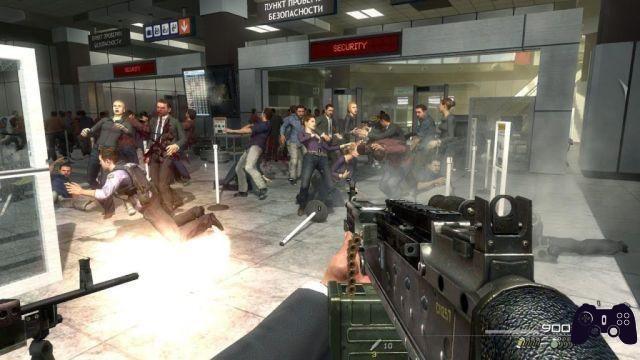
"A very broad set of phenomena, connected with the growth of economic, social and cultural integration between the different areas of the world"
The Treccani encyclopedia thus defines the globalization, a term that, since 1990, has spread to become one of the main global issues, where the debates mainly revolve around its stratification, as well as on the actual extent of this phenomenon. In the face of an economic and financial globalization that is increasingly certain and affirmed, it is instead more indefinable and full of contradictions on a social and cultural level, in spite of the generalist opinion: the anthropologist Stefano De Matteis coined the expression "False freedoms" just to indicate the set of beliefs and peculiarities generally attributed to the present world, considered (erroneously) globalized in all respects. One of the main false certainties linked to globalization is that relating to the idea of one standardization prevailing, with common rules and principles that presumably would level out as much as possible, with the aim of erasing them, the differences and in general the obstacles to global interconnection.
in a world (globalized, and at the same time handmade by each of us) that offers disorientation and dispersion, security is sought in the rules: and the more strict they are, the more they give certainties; in general, in such situations sharing is sought, in the sense of ideal, ideological and material belonging. - Stefano De Matteis
What actually occurs sees the various realities (cultural, social, etc.) "locals" to close up like a hedgehog, or in any case to fight for survival within a phenomenon, globalization, which more or less consciously promotes the extinction of diversities, rather than their integration. In one of the books of the aforementioned anthropologist, entitled "False freedoms: towards postglobalization (Meltemi, 2017)" several stories are told, including that of a Bengali shopkeeper who moved to New York, Amitav, who lived within a community of compatriots, intent on preserving as much as possible in everyday life the habits and customs of their country of origin, Bangladesh. Parallel to the successful integration into American society, Amitav in fact cultivated the bond with his homeland and with his children and relatives, divided into several parts of the globe. He had, in the house, a wall with three clocks posted, where each one marked a different time.

Of the three clocks, the first showed the time in the hometown, Chittagong. The second that of Frankfurt, very similar to that of Milan. The third is that of the city of residence, New York.
Most of the relatives were in fact in Bangladesh, while some children lived and worked in Milan and Frankfurt; Amitav kept these watches for a practical reason, linked to the possibility of calling at the most appropriate moment of the day taking into account the time zone, but the symbolic function relating to the "resistance" carried forward against globalization itself. The same that, however, had allowed him to move elsewhere in search of a better future, and which today has new needs: for example, if until a few decades ago the knowledge of English (the "lingua franca" of our time ed) constituted an added value, today it represents an obligation or almost, a more or less pressing need often and erroneously taken for granted.
How do these aspects relate to the video game? What effects has globalization had on it?
The new globalized reality has certainly, for better or for worse, caused a distortion of values and lifestyles, also thanks to the very high level of production of goods which, to paraphrase the philosopher Gianni Vattimo, constantly translate into a bombardment of stimuli, which in turn trigger a sensory overload: just think of the practice of backlog, an absolutely paradigmatic videogame phenomenon within an increasingly “disposable” society, where the thirst for profit, competition and other factors have contributed to a saturation of the market. Saturation that is expressed through an abundance of titles unthinkable until twenty years ago, with (with some exceptions) increasingly accessible prices that have encouraged the compulsive purchase by many players, who between a balance and a bundle have ended up accumulating hundreds of titles, especially in digital libraries.
In fact, globalization takes place in parallel with what has come to be defined as era of digital, a phase in the history of the world that concerns us firsthand and that has numerous implications.

The platform synonymous with backlog is the PC par excellence, and in this case Steam. The undersigned at the moment is sadly at 828 titles.
In fact, the digitization process underway does not spare video games, with an increasing number of titles distributed only in the various online stores, to the detriment of the existence of physical copies, whose extinction seems to be announced. They originally included (and partly still include) the disc or in general the support containing the video game, an instruction booklet and, at times, maps or other products that could relate to the lore of the video game, today almost exclusively enclosed within the title itself, also thanks to technological development and the possibility of storing ever greater quantities of data. Ironic and paradoxical it becomes, in today's shops, the possibility of coming across physical packages of titles containing only the game key, to be redeemed on the videogame platform, which will then be redeemed by the download, sometimes assisted by the presence of a physical installation CD.

To learn more:
Censorship in Video Games: between Problems and Solutions
This process focused on the transition from physical to IT support has contributed to reduce the cost of video games, also facilitating their diffusion and access all over the world. And again in the context of a proverbial "disposable" consumer society, it has also encouraged the creation of an increasing number of titles, even to the detriment of the "quality" of individuals, often jeopardized by the more or less accentuated need for develop and distribute a video game in the shortest possible time, in the act of indulging, more than an audience of gamers thirsty for novelty, the need to invoice.
The apotheosis of the contradiction from a videogame globalist point of view: localization.
One of the most interesting aspects that must be emphasized within a video game analysis is its differentiation, as well as its scope. Not unlike cinema and music (whose relationships with both are far from superficial), it presents a copious multitude of genres and sub-genres, some of which may even be representative of a specific culture or country. . An example of a must is the JRPG, which compared to RPG canons present a game mode usually focused on turn-based combat rather than in real time, as well as the classic characteristics of Japanese culture on a visual and conceptual level: from cel-shaded graphics to typical features of the culture related to anime and manga, such as disproportionately large weapons compared to the users or particularly scenographic clothing. Over the years, globalization has allowed a a progressively greater number of video games born, developed and initially distributed in a limited geographical area to be known and appreciated all over the globe, breaking down barriers and sometimes cultural stereotypes. As in the cinema, even a video game "exported" abroad can have different levels of translation, if not one location real, based on the appreciation / sales prospects of a single product. The translation can be carried out on several levels, both in terms of care and layering: it can be applied only to the game menu, or even to any speech sections with the addition of subtitles; conversely, localization is a much more complex, profound and expensive process, which often “testifies” to a country's attachment to a specific title or brand.
The adaptation of a product in order to make it culturally and linguistically appropriate to the local target where it will be used and distributed. - Bert Esselink
The Dutch B.Esselink summarizes the process of location, which involves infinitely more work than translation, which instead is limited to the simple grammatical and syntactic rendering in the target language starting from the original one. In fact, in the act of localizing a product, we are not limited only to this, but particular care is taken in reporting and, if necessary, adapting expressions, concepts, etc. that may not have actual equivalent in countries other than the one of origin: a process of care and adaptation that is not limited only to the language, but above all to the culture of the destination country. From variations in the interface that can improve the user experience up to, where necessary, variations in content, if not real censorship. Everyone will remember the case of the video games belonging to the series Wolfenstein where, especially in the last chapters, the German versions of the game had all the iconography related to Nazism removed, without excluding some variations in Adolf Hitler himself, made vaguely unrecognizable by the removal of the mustache. However, the case that caused the most stir in recent years was that of Call Of Duty: Modern Warfare 2.

Still from the “No Russian” mission, where it is possible to open fire on the inert crowd inside the Moscow airport.
Within this level it is in fact possible (it is not necessary to continue), in the role of a CIA agent infiltrated in a gang of terrorists during an attack on the Moscow airport, to shoot unarmed and fleeing civilians. Initially, a government measure was issued in Russia to withdraw all physical copies of the game from the market: but after realizing the infeasibility of the thing, it was decided to act differently. Subsequently, a patch was released in the Russian versions of the game, which completely eliminated the mission object of scandal. In the other versions, however, the mission was made optional, giving the possibility to skip it or not in the act of playing the campaign.
Globalization is therefore configured as a process that more or less consciously tries to smooth out the linguistic, social, economic differences, etc. between the various areas. interconnected of the world, where not only borders and barriers are progressively demolished, but sometimes also traditions and identities. Paradoxically this has done nothing but accentuate various forms of "protest", from the claim to have products adapted to its market (under penalty of “skaffalehh”) to the recognition and enhancement of individual cultural identities, from the local to the global level. The video game does not appear to have emerged unscathed from the advent of globalization, and in fact constitutes yet another "mirror" where there are contradictions, bonuses and penalties of a phenomenon that has changed and continues to change the planet, where distances are no longer measured in kilometers, but in minutes. A planet where the existence of network (internet ed) as an immaterial and technological superstructure at the basis of global interconnection, it has simultaneously encouraged and hindered the creation of authentic communities, whose authority is no longer based (only) on the possible geographical "proximity", but on strength and cohesion of a passion or a common interest: in this case, that for iThe videogame, the frontier of interaction between different people, countries and cultures.






